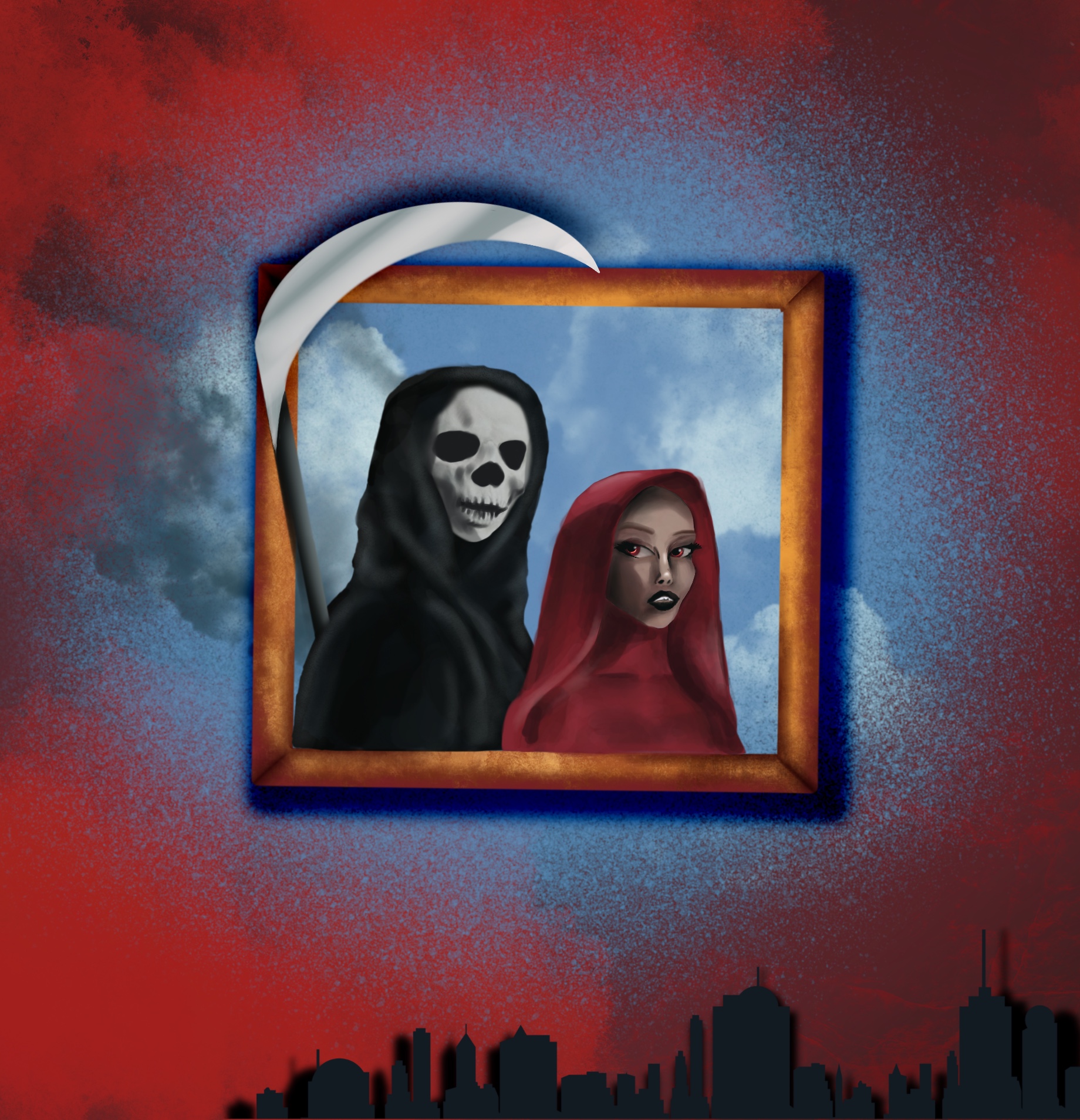“I make fucking music, and you like it. And if you don’t, cool, great, I don’t give a shit.”
That’s what Doja Cat had to say in a now infamous Instagram Live in which she callously criticized her critics and fans alike. The 27-year-old artist’s words, a fiery reaction to allegations that her boyfriend is abusive, sparked outrage among her followers who felt unappreciated and proclaimed their hatred for her new “edgy” personality. They could tolerate the artist’s regular Twitter trolling and even her denunciation of her past two albums, Hot Pink (2019) and Planet Her (2021), as “cash-grabs” and “mediocre pop,” but the blatant disrespect toward her supporters was too far.
Such was the atmosphere going into the release of Doja’s highly anticipated fourth studio album, Scarlet (2023). A combative yet cryptic Doja was simultaneously beefing with her fan base while hinting that her next album would be genre-shifting and career-defining, leaving many critics skeptical that she could recreate the magic of past works. But when the album was released on Sept. 22, there was swift consensus: she had done it again.
Does Scarlet achieve everything Doja wanted? Not exactly. The album undergoes a tonal shift halfway through, transitioning from high-energy, forceful raps to softer displays of emotion similar to previous work—a far cry from the revolutionary sound she had been teasing. Despite these unmet promises, though, there’s no doubt that this album represents a return of the devilishly delicious Doja that fans love. On Scarlet, an unapologetic Doja Cat showcases her vocal ability, lyricism, and sexuality with a brash confidence that oozes out of every track, captivating fans and haters alike.
From the album’s opening, we see Doja’s new brazen attitude toward her public image. Now that she has achieved worldwide renown, she no longer feels the need to dilute her creative vision to appeal to mainstream tastes—a sentiment she expresses in “Paint the Town Red.” Although criticized for its simplistic production, the opener’s basic rhythm and interpolation of Dionne Warwick’s “Walk on By” (1964) infuses the song with an undeniable retro hip-hop flair—a genre that saturates the album. Lines like “I don’t need to wear a wig to make you like it” emphasize her rejection of popular beauty standards, evident by her new demonic aesthetic and freshly-shaven head.
Doja relishes the fact that, whether or not listeners like the new Doja, they’re still consuming her music and lining her pockets. On “Demons,” a track featuring a frenzied tone and exasperated vocals, Doja proclaims that “I’m the fastest growing bitch on all your apps now,” a nod to her notorious online virality. And on “Fuck the Girls (FTG),” Doja lays into a particular brand of her followers: those who parasitically attach themselves to her image and feed off of her fame like vultures. “They wan’ pull out cameras at hotels / Sell that shit for a dime, I pay they home bills,” she raps, likening these “girls” to social bottom feeders. The toned-down production of this track places the emphasis on Doja’s rapid biting verses, making them feel right at home with diss tracks of the ’90s.
Perhaps Scarlet’s greatest success is the room it gives Doja to fully display her lyrical prowess. Although Planet Her solidified Doja Cat’s status as a pop icon, its reliance on complicated yet enchanting choruses made her rap verses feel lacking in comparison. Scarlet reverses that framework, letting Doja’s flow take center stage in the album’s first half. “Ouchies” opens with a particularly simplistic yet entertaining chorus, evoking the blocky synthesizer sounds of fighting games like Mortal Kombat and Street Fighter; yet it’s merely an appetizer before Doja masterfully spits bars like “A hunnid billies, I’m the GOAT, no Eilish.”
Whereas Scarlet’s opening half brings a punchy, in-your-face fervor, the closing half opts for a slower, steamier atmosphere—the perfect playground for Doja’s sensual side. In many ways, this vibe fits right in with her older tracks like “Streets” and “Need to Know,” which aroused heart palpitations in even the most frigid of listeners. Scarlet combines this energy with classic hip-hop, a pivot from prior productions. Piano keys and low bass guitars permeate the record’s second half, perfectly complementing both Doja’s lower, raspier tones and her higher, angelic pitches.
“Agora Hills” emerges as a highlight here, taking the form of a sensuous confession to her partner. Doja often utilizes the second person in her more sultry music, situating herself as the lover serenading her muse. A sparse drumbeat and otherworldly harmony provide the baseline—a simple yet effective foundation that is equal parts soothing and hypnotic. “I wanna show you off,” she chants, an appeal made to her object of affection. Doja’s verses on this song are particularly unique, a result of her modulating her voice differently between lines. She adopts a higher register akin to a Valley Girl accent, emphasizing her pure devotion to her flame. While the allegations facing Doja’s boyfriend make these lyrics troublesome, there’s no denying the track’s outstanding quality.
Doja may have seemed callous leading up to Scarlet’s release, but several songs across the album express genuine gratitude. “Love Life,” a low-tempo jazzy number, feels especially directed toward her fans. “They love it when I embrace my flaws / I love it when they doin’ the same,” she raps, simultaneously relishing the confidence they give her and her pride in their enjoyment as well. She also references her controversial behavior, citing it as a product of her temper but acknowledging that her true fans just want to see her succeed. It’s not a regretful admission—her unashamed nature is part of her charm—but a promise to never again forsake her fans out of pettiness.
In anticipation of its release, some fans theorized that Scarlet was more than just the album’s name, but the debut of an entirely new alter ego. Regardless of the rumor’s veracity, there’s no doubt that this Doja is one we’ve never seen before: a woman who takes shit from no one and continues to mesmerize the world. Time will only tell whether we’ll see her again.
VOICE’S CHOICES: Fuck The Girls (FTG); Agora Hills; Attention; Balut






